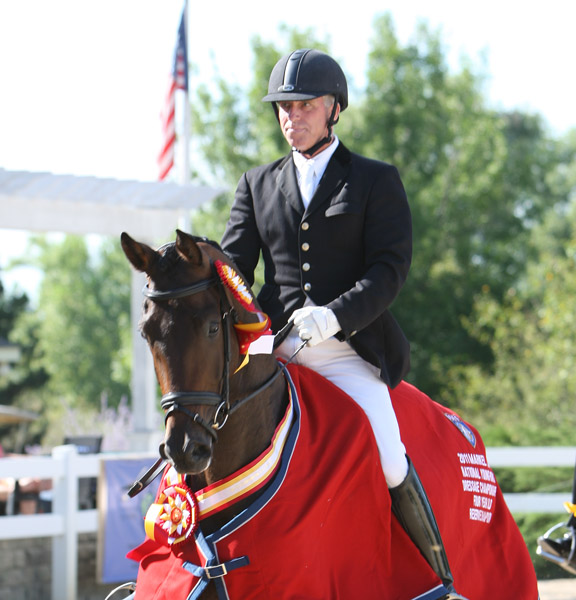More Details on US Dressage Federation National Championship Propoal
13 years ago StraightArrow Comments Off on More Details on US Dressage Federation National Championship Propoal

By KENNETH J. BRADDICK
Details are emerging of a new United States national championships organized by the U.S. Dressage Federation to debut in the fall of 2013.
Both USDF President George Williams and the U.S. Equestrian Federation that governs American horse sports and organizes the current annual Grand Prix and Intermediaire Championships, said they were working together to create the new championships beginning at Training level through to Grand Prix.
The new championships are intended to be a joint USDF/USEF project, George said, of head-to-head competition.
The basic concept is that the top two finishers in both adult amateur and open levels in the nine USDF regional championships will be invited to compete in separate divisions at the national championships scheduled for the Kentucky Horse Park in Lexington in the fall of 2013.
Although non-U.S. citizens can compete at the regional championships, they will not be allowed to take part in the national championships.
Qualification for the current Intermediaire and Grand Prix Championships that are organized as part of the Festival of Champions by the USEF and used as selection trials for the Olympics and World Equestrian Games at big tour and Pan American Games at small tour is by CDI results no matter where competitors are based. The current championships are open only to American citizens.
George Williams said that various groups within the USDF had cosidered the national championships for the past 18 years.
The USDF Board of Governors approved the championships after the group’s executive board appointed an Organizational Task Force and a Competitor Advisory Group that are tasked with working out the details.
“The championships we are planning to hold are not intended to replace the Festival of Champions nor the Young Horse/Developing Horse Championships,” George said.
“The USEF High Performance Championships (which include the Selection Trials) will continue to be held as will the YH/DH Championships. It has to be kept in mind that the USDF is looking at holding a head-to-head competition based on a qualifying process that uses the current GAIG/USDF Regional Championships.
“The USEF Dressage High Performance Championships at Grand Prix and Intermediaire I use a qualifying process based on scores achieved at CDIs.
“Since the qualifying processes are quite different, the USDF competition could have appeal to a broader group of competitors. The competition will include Finals in the Open divisions for the FEI Levels. We have no plans to include Finals for Brentina Cup (Under-25 Grand Prix), Young Horse, Developing Horse, FEI Ponies, Juniors and Young Riders.”
The USDF and USEF have held discussions for many months and, George said, there is preliminary agreement on ways to minimize confusion between the current USEF National Championships and the open finals for FEI levels at the new championships.
As with most national championships around the world, he said, the USEF National Championships are restricted.
However, the U.S. Eventing Association championships at national levels are open to all members regardless of citizenship while the FEI level championships are determined at international competitions such as Rolex Kentucky Three Day Event that is open to all nationalities but the placings by U.S. riders determine American ranking.
U.S. jumping does not have a national championship but the U.S. Hunter Jumper Association is considering such a final. U.S. teams are selected for Olympics, for example, by trials such as in Wellington, Florida, in winter and national rankings for other teams, though the chef d’equipe is typically allowed to appoint some team members.
Some questions raised after the USDF announcement focused on the open championships.
Among them were that regions of the country with strong dressage capabilities could be under-represented while other areas might not be competitive on a national stage and that if non-U.S. citizens were more successful than Americans at regional championship levels that could impact the credibility of the national titles.

